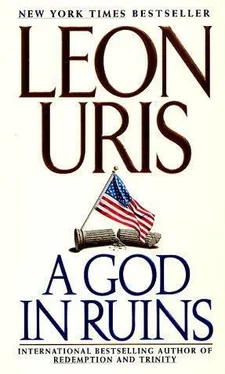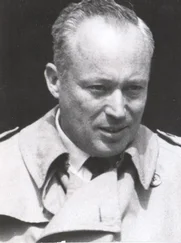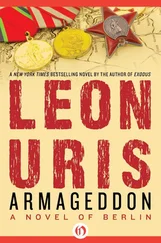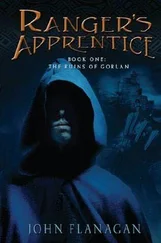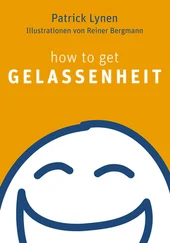A God In Ruins
A God In Ruins
TROUBLESOME MESA, COLORADO
AUTUMN, 2008
A Catholic orphan of sixty years is not apt to forget the day he first learned that he was born Jewish. It would not have been that bombastic an event, except that I am running for the presidency of the United States. The 2008 election is less than a week away.
Earlier in the day, my in-close staff looked at one another around the conference table. We digested the numbers. Not only were we going to win, there was no way we were going to lose. Thank God, none of the staff prematurely uttered the words “Mr. President.”
This morning was ten thousand years ago.
I’m Quinn Patrick O’Connell, governor of Colorado and the Democratic candidate for president. The voters know I was adopted through the Catholic bureaucracy by the ranchers Dan and Siobhan O’Connell.
My dad and I were Irish enough, at each other’s throats. Thanks to my mom, we all had peace and a large measure of love before he was set down in his grave.
All things being equal, it appeared that I would be the second Roman Catholic president in American history. Unknown to me until earlier this day, I would be the first Jewish president as well.
Nothing compares to the constant melancholy thirst of the orphan to find his birth parents. It is the apparatus that forms us and rules us.
Aye, there was always someone out there, a faceless king and queen in a chilled haze, taunting.
Ben Horowitz, my half brother, had been searching for me, haunted, for over a half century. Today he found me.
Tomorrow at one o’clock Rocky Mountain time I must share my fate with the American people. You haven’t heard of Rocky time? Some of the networks haven’t, either. Lot of space but small market.
The second half of the last century held the years that the Jews became one of the prime forces in American life. Politically, there had been a mess of Jewish congressmen, senators, mayors, and governors of enormous popularity and power. None had won the big enchilada. I suppose the buck stops here.
Had I been elected governor as Alexander Horowitz, I’d have been just as good for my state. However, the discovery of my birth parents a week before the presidential election could well set off a series of tragic events from the darkness where those who will hate me lay in wait.
How do I bring this to you, folks? In the last few hours I have written, “my fellow Americans” twenty-six times, “a funny thing happened to me on the way to Washington” twenty-one times, and “the American people have the right to know” three dozen times. My wastebasket overfloweth.
Don’t cry, little Susie, there will be a Christmas tree on the White House lawn.
No, the White House kitchen will not be kosher. My love of Carnegie tongue and pastrami is not of a religious nature.
By presidential decree, the wearing of a yarmulke is optional.
Israel will not become our fifty-first state.
To tell the truth, my countrymen, I simply do not know what this means in my future. O’Connell was a hell of a good governor, but we are in uncharted waters.
I’m getting a little fuzzy. I can see into the bedroom, where Rita is sprawled in the deep part of a power nap. Rita and our bedroom and her attire are all blended with Colorado hush tones, so soft and light in texture. At the ranch Rita liked to wear those full and colorful skirts like a Mexican woman at fiesta. As she lays there a bit rumpled, I can see up her thighs. I’d give my horse and saddle to be able to crawl alongside her. But then, I’d never finish my Washington’s farewell to the troops speech.
On the other hand, Rita and I have made the wildest gung ho love when we were under the deepest stress.
Write your speech, son, you’ve got to “face the nation” tomorrow, Rocky Mountain time.
Straight narrative, no intertwining B.S. or politicizing. Explain the O’Connell ne Horowitz phenomenon. Truth, baby, truth. At least truth will not come back to haunt you.
Strange, I should be thinking of Greer at this moment. Rita is the most sensual soul mate one could pray for. We have loved one another without compromise for nearly thirty years. Yet, is it possible that Greer is really the love of my life?
I’d have never come this far in the campaign without Greer Little’s genius. I would have been tossed into the boneyard of candidates never heard from again. She organized, she raised money, she knew the political operatives, and she masterminded my “miracle” campaign.
I was struck by the realization that Greer would leave soon, and I felt the same kind of agony as when we broke up years before. I had needed to see Greer on some business, and knocked and entered her room. She had been on the bed with Rita, passed-out drunk. Rita had held her and soothed her as though she were a little girl, and Rita had put her finger to her lips to tell me to be quiet.
Well, there was life without Greer, but there could be no life without Rita. Yet it still hurts.
I watch the hours flow in the passageway behind me like the tick of a suppressed bomb about to be released. I am through with a draft. I write another.
As the hours to dawn tick off, it all seems to come down to the same basic questions. Am I telling the truth? Do the American people have the civility and the decency to take the truth and rise with it?
Why me, Lord? Haven’t I had enough of your pranks? Isn’t slamming the White House door in my face just a little much, even for Your Holiness? I’m at the landing over the reception foyer of the White House. The Marine band drums up “Hail to the Chief” and the major of the guard proclaims, “The president of the United States and Mrs. Horowitz.” Oh, come on now, Lord. Aren’t you carrying this a little too far?
Well, all the stories of the good Irish lives are best passed on around the old campfire from schanachie to schanachie, and I’ll not spare you mine.
In actual fact, my own beginnings began at the end of World War II, when my future adopted father, Daniel Timothy O’Connell, returned from the Pacific with a couple of rows of ribbons and a decided limp.
BROOKLYN, AUTUMN 1945
The war to end all wars had ended. The Military Air Transport DC-3 groaned as the cables stretched in a turn, and a piece of the plane’s skin flapped against the pilot’s window. The tail swung. A queasy contingent of soldiers, sailors, and a few Marines were losing the battle with their equilibrium.
Staff Sergeant Daniel Timothy O’Connell tried to suck oxygen from the
wilted air as beads of sweat popped out on his forehead. The sergeant
mumbled into his beard that he had come all the way from San Diego without puking and damned if he was going to puke in front of a planeload of swab jockeys and dog faces.
In the cockpit a pair of MATS women flew the craft, adding to his discomfort. “Guadalcanal,” he continued mumbling, “Tarawa, Saipan, Okinawa, only to crash ten miles from home!”
Crossing the United States was no simple matter. There was no commercial air service to and from San Diego. MATS, which took as many discharged veterans as it could, had hundreds on their waiting list.
O’Connell had caught a train from San Diego to L.A. From there, two different airlines making nine stops over a twelve hour period landed him at Wright-Patterson Field outside Dayton.
There was a delay of several hours before another MATS plane could get him to the East Coast. He checked in and segued into a bar just outside the gates and sashayed in with a sailor he had teamed up with named Gross. Marines seldom used first names, so Gross was Gross.
They entered the Blue Lady lounge to see a half dozen women lined up at one end of the bar.
“Could be a B-joint,” O’Connell said. “Got your dough safe?”
Читать дальше
